Mashonaland Eagles
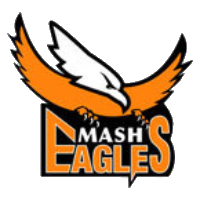
Mashonaland Eagles: competitions
Mashonaland Eagles: First-Class Cricket Competitions
Logo Tournament Wins Years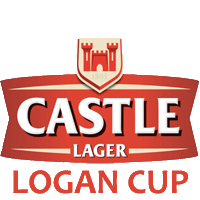 Logan Cup
2
2009–10, 2015–16
Logan Cup
2
2009–10, 2015–16
Mashonaland Eagles: Limited Overs Cricket Competitions
Logo Tournament Wins Years Pro50 Championship
1
2011–2012
Pro50 Championship
1
2011–2012
Mashonaland Eagles: Twenty20 Cricket Competitions
Logo Tournament Wins Years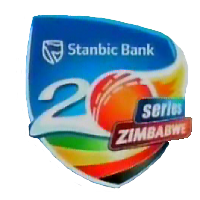 Stanbic Bank 20 Series
1
2010–11
Stanbic Bank 20 Series
1
2010–11
Mashonaland Eagles: Current Squad
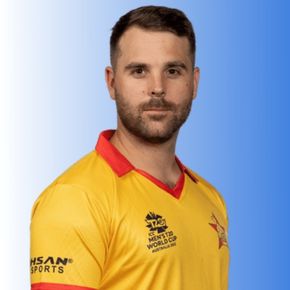 Ryan Burl
All-rounder
Ryan Burl
All-rounder
Mashonaland Eagles: about the Zimbabwe cricket team
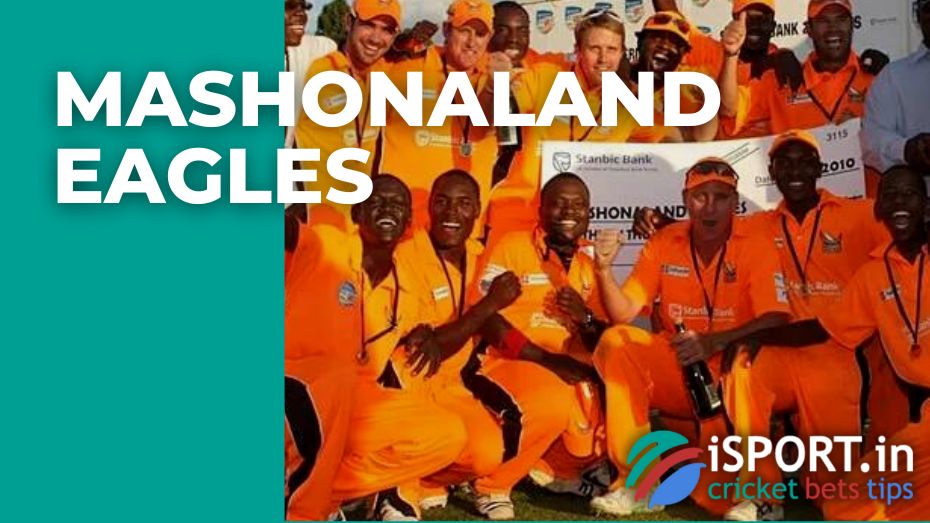
The Mashonaland Eagles is one of the main Zimbabwean cricket franchises, with teams are in first-class, ODI and T20 versions. The organization is based in the capital city of Harare in the province of Mashonaland Central. Home matches are held at the central arena of the country – Harare Sports Club.
Mashonaland Eagles: history
The Zimbabwe Cricket decided to take advantage of the changes in ICC standards for recruiting new teams in all forms of first-class, List A and T20 cricket in the 2009-10 season. In total, the organization announced the appearance of 5 new clubs, including the capital-based Mashonaland Eagles.
The debut tournament for the new organization was the 2009-10 Logan Cup, where the newcomer unexpectedly became the favorite. The club started its performances quite confidently, which met the expectations of the majority. In the final, the Mashonaland faced a serious opponent – the Mid West Rhinos, and won thanks to the rule of a higher position in the group, playing at the same time in a draw in regulation time.
Throughout the championship, there was no doubt about the success of the Eagles. The club started in a draw against the Mountaineers, starting a major winning streak. The first is a crushing victory over the Southern Rocks by 234 runs, then over the Matabeleland Tuskers.
The Eagles started the 2009-10 Faithwear Metbank ODI Mash with a flop after a huge victory. The meeting with the Faithwear Metbank turned out to be extremely unsuccessful, so it was only possible to get to the semifinals by finishing third in the group. Failure in the match with the Mid West Rhinos deprived them of this opportunity.
The Mash Eagles began their Twenty20 debut winning over the Matabeleland Tuskers in the 2009-10 Stanbic Bank 20 Series. The team remained highly motivated and in excellent condition, which made it possible to complete the group stage in the first row with 17 points. The Eagles faced the Mountaineers in the semifinals, who turned out to be stronger this time, despite the previous defeat in the face-to-face meeting.
The title defense in the 2010-11 Logan Cup was unsuccessful for the Mash – the team finished in penultimate place in the group, 2 points behind the Southern Rocks. However, the deplorable state was not even in this: the total absence of victories for the entire tournament – all 6 matches ended in a draw.
New tournament – the 2010-11 Metbank Pro40 Championship – and another failure. The Eagles finished the Pro40 at the bottom of the standings with 2 wins in 8 meetings. Naturally, this did not allow them to make it to the semifinals, completing their own performance at the qualifying stage.
After a disastrous start to the 2010-11 season, the Eagles ended the year on an optimistic note with a second hand in the Stanbic Bank 20 Series, while taking the top over their principal opponent, the Mid West Rhinos, made it feel like a win. Thanks to a renewed coaching staff led by Zimbabwean legend Grant Flower and a host of top fielders Andrew Hall, Ryan ten Doeschate, and Nick Compton, the opponents were well-prepared.
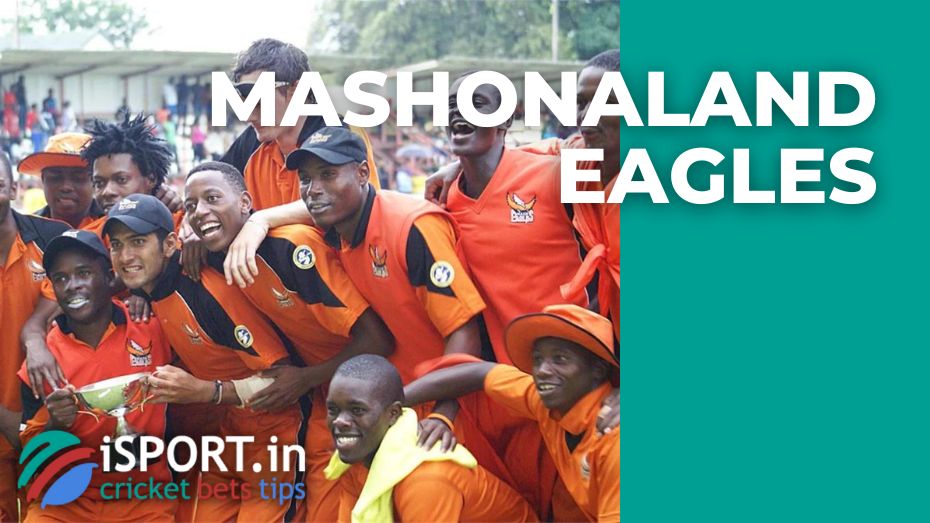
The next season, the 2011-12 Logan Cup Mash opened with victoria over the Southern Rocks. The club continued their successful streak against the Mountaineers, winning 132 runs. In general, the tournament ended for the Eagles on the second line of the overall standings.
Then the Mashonaland started at the Coca-Cola Pro50 Championship, where they won 6 of 8 matches, which allowed them to win the drawing, leaving the group from the first row with 28 points.
One of the most epic moments in the club’s history is the 2011-12 Stanbic Bank 20 Series, where the Eagles hit a perfect 3-match friendly against Kenya. The club’s management did not hide the fact that the Mash was specially signed by star players Ryan ten Doeschate, Peter Trego and Rory Hamilton-Brown within the framework of this series. In fact, they turned out to be the weakest link.
It so happened that they repeated the fate of the Matabeleland Tuskers, who also decided to spend money on superstars Chris Gayle and Paul Horton. However, the last one still managed to win the group stage in the face-to-face confrontation. On the brink of relegation, the Eagles snatched a victory from the Southern Rocks, bringing them back into the fight. It was followed by success in the match with the Mid West Rhinos and passage to the playoffs.
The final confrontation with the obvious favorites Matabeleland ended with a stunning victory with a difference of 23 points in favor of the representatives of Harare. The hero of the match was Ryan ten Doeschate, who almost single-handedly led the Eagles to victory.
Mashonaland Eagles: home stadium
The home arena of the Mashonaland Eagles is the capital arena Harare Sports Club. The stadium is designed for 10 thousand seats, but if necessary, it can be equipped with up to 11 900.
The advantage of the arena is the rotating floodlights, installed back in 2011 in preparation for the August meeting of Zimbabwe – Bangladesh.
In addition, Harare Sports Club is rightfully considered the heart of the city because it is located in the very center of the Zimbabwean capital. The arena, surrounded by trees, looks very picturesque. In addition, it has an advantageous location, which is dictated by the proximity of the presidential palace and the prestigious Royal Harare Golf Club.
The debut Test meeting at Harare Sports Club took place on October 18-22, 1992 between the national teams of Zimbabwe and India. The arena has been the base for the Mashonaland Eagles club since 2009.
Mashonaland Eagles: players
A very promising line-up of Zimbabwean players has been announced for the debut meeting of the new club in the 2009-10 Logan Cup. Key among them were the round Elton Chigumbura, batsmen Ryan Butterworth, Barney Rogers, Cephas Zhuwao, Greg Lamb, wicket-keepers Regis Chakabva and Forster Mutizwa, as well as bowlers Douglas Hondo, Darlington Matambanadzo and Ray Price. In the same season, right before the 2009-10 Stanbic Bank 20 Series tournament, Chris Silverwood joined the team and became a major asset.
The next season, 2010-11, was rich in line-up changes. So the former representative of the Northamptonshire and the South African national team Andrew Hall became the captain, and the coaching staff was entrusted to the once top ex-player Grant Flower. Bowler Charlie Shreck and batsman Nick Compton also joined the team. However, they didn’t enjoy the squad because of the series of failed Logan Cup and Pro40 tournaments.
Elton Chigumbura, who unfortunately decided to continue the Southern Rocks’ career, but was favorably replaced by Forster Mutizwa, was added to the roster at the 2011-12 contract announcement. Newcomers included batsman Sikandar Raza and bowler Nathan Waller. The management regretted that it was impossible to work with Ray Price, who joined the team a little later.
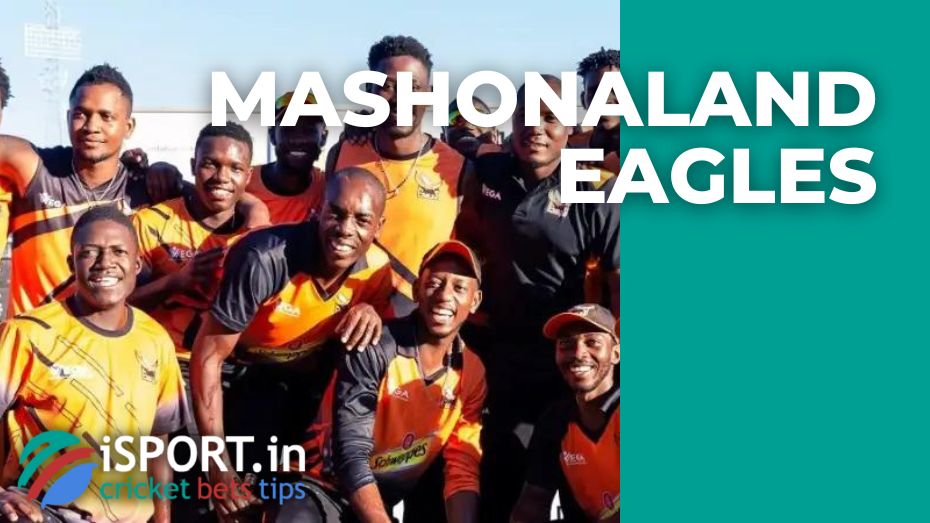
For the Stanbic Bank Twenty20 tournament, he decided to return to the Chigumbura line-up, although Rory Hamilton-Brown soon replaced his place. The key players were Peter Trego and Ryan ten Doeschate. The Eagles had an excellent championship with this core, finishing second.
At the moment, the composition of the Mash Eagles is as follows.
| No. | Name | Birth date | Batting Style | Bowling Style | |
| Batsmen | |||||
| Tinashe Kamunhukamwe | 10 July 1995 (age 25) | Right-handed | Right-arm offbreak | ||
| 4 | Elton Chigumbura | 14 March 1984 (age 37) | Right-handed | Right arm fast medium | |
| 20 | Cephas Zhuwao | 15 December 1984 (age 36) | Left-handed | Slow left-arm orthodox | |
| Tarisai Musakanda | 31 October 1994 (age 26) | Right-handed | Right arm medium | ||
| All-rounders | |||||
| 13 | Tinotenda Mutombodzi | 21 December 1990 (age 30) | Right-handed | Right-arm legbreak googly | |
| Tony Munyonga | 31 January 1999 (age 22) | Right-handed | Right-arm offbreak | ||
| Chamu Chibhabha |
6 September 1986 (age 34) | Right-handed | Right arm medium | ||
| Kudzai Maunze | 10 April 1991 (age 30) | Right-handed | Right-arm offbreak | ||
| Wicket-keepers | |||||
| 2 | Regis Chakabva | 20 September 1987 (age 33) | Right-handed | Right-arm offbreak | |
| Spin Bowlers | |||||
| Tapiwa Mufudza | 20 September 1990 (age 30) | Right-handed | Right-arm offbreak | ||
| Rugare Magarira | 27 April 1997 (age 24) | Right-handed | Slow left-arm wrist-spin | ||
| Kudakwashe Munyede | 30 April 1991 (age 30) | Right-handed | Slow left-arm orthodox | ||
| Pace Bowlers | |||||
| 5 | Trevor Garwe | 27 June 1986 (age 35) | Left-handed | Right arm fast-medium | |
| Richard Ngarava | 28 December 1997 (age 23) | Left-handed | Left-arm fast-medium | ||
| Faraz Akram | 3 October 1993 (age 27) | Left-handed | Right arm medium | ||
| Daniel Jakiel | 14 November 1990 (age 30) | Right-handed | Right arm fast-medium | ||
| Patrick Mambo | 15 November 1995 (age 25) | Right-handed | Right arm fast-medium | ||
| Keith Jaure | 2 March 1998 (age 23) | Left-handed | Left arm medium-fast | ||
| Blessing Muzarabani | 2 October 1996 (age 24) | Right-handed | Right arm fast-medium | ||
* international players are in bold.
